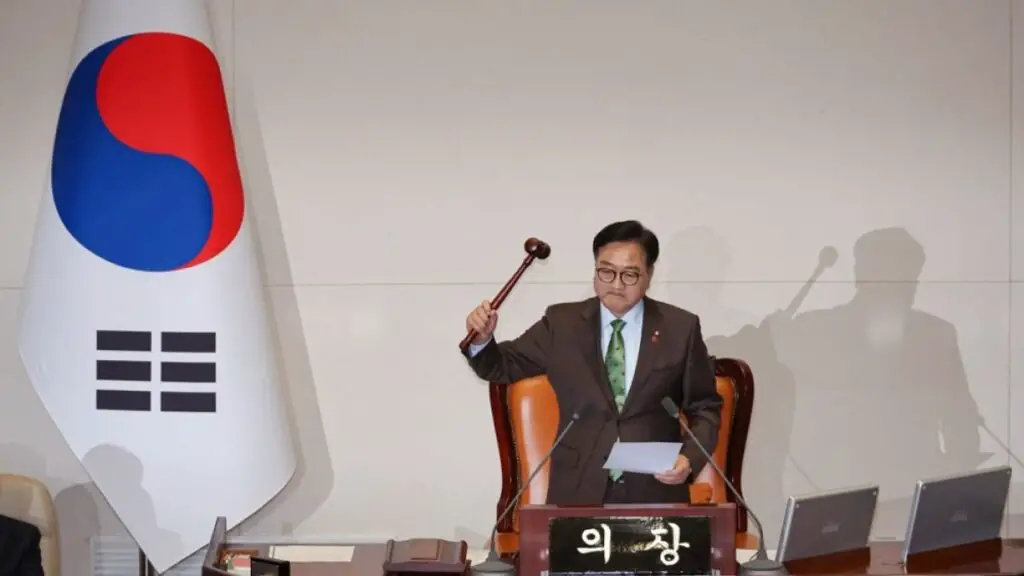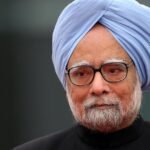Seoul — South Korea’s National Assembly Speaker Woo Won-shik has emerged as an unlikely symbol of leadership during the country’s ongoing political unrest sparked by President Yoon Suk-yeol’s order Declaration of martial law on December 3rd.
Although the speaker of the assembly has held South Korea’s second-highest office after the presidency, he has historically played a low-profile role, operating behind the scenes of political life.
Unlike the speaker of the United States House of Representatives, who drives Washington’s legislative agenda as leader of the majority party, the speaker of South Korea’s parliament is required by law to renounce his party affiliation in the election to maintain neutrality. The majority of speakers also retire at the end of their term of office.
But Woo’s decisive but measured actions during the recent crisis seem to have turned the traditional view of the speaker and his role on its head.
“It was refreshing to see someone like him step up and act decisively at such a critical moment,” Yoo Junghoon, a lawyer and political columnist, told Al Jazeera.
“It allowed voters – young and old – to realize that there are still such capable politicians,” Yoo said.
South Korean youth even nicknamed Woo “National Assembly Thor” – a reference to his gavel and the Marvel superhero’s handling of his mighty hammer.
A recent Gallup Korea poll found that 56 percent of respondents expressed confidence in Woo, an unusual number in a country where trust in the National Assembly has fallen to just 20.6 percent, according to one OECD survey 2024.
Student demonstrator against “Thor” of the constitutional process
As a young student activist, Woo was imprisoned for three years after protesting against the military dictatorship, which extended martial law in 1980 following the assassination of President Park Chung-hee in 1979.
The crackdown culminated in the deadly Gwangju Uprising in May 1980.
After President Yoon declared martial law on the night of Dec. 3, Woo, 67, climbed the fence of the National Assembly after police barricaded the entrance to prevent lawmakers from entering and holding a vote to overturn the order detain presidents.
“I knew we had the constitutional authority to lift martial law,” Woo later recalled in a press conference.
“I didn’t hesitate. I had to go to the meeting no matter what,” he said.

Even as South Korean special forces soldiers advanced on the assembly building, Woo insisted on following proper legislative procedures, despite increasing pressure from concerned politicians who urged him to speed up the process by perhaps cutting a few corners.
“In moments like these, it is even more important to follow the correct procedure without errors,” Woo told his worried colleagues in the surrounding meeting room.
At one point, troops came dangerously close to breaking into the main chamber where lawmakers were voting, leading to a tense standoff with Assembly staff.
The decisive vote took place and all 190 deputies present in the 300-seat assembly voted to lift martial law.

“There was a lot of reaction on social media asking why (Woo) was so focused on following legislative procedures,” said Yoo, the political columnist.
“But now even those who oppose impeachment (against President Yoon) cannot find fault with the process he supported,” Yoo said.
Bong Young-shik, a research fellow at Yonsei University’s Institute of North Korean Studies, attributed the peaceful resolution of the chaotic situation without civilian casualties to Woo’s emphasis on scrupulous adherence to constitutional procedures.
“In such an unexpected and serious situation, both conservatives and progressives believed Woo was trustworthy,” Bong said.
“We saw that this approach worked exactly as intended,” he said.
“South Korea is strong. His people are resilient.”
Woo continued to adhere to strict constitutional procedures in the first year. failed impeachment vote against President Yoonon December 7 for declaring martial law and plunging the country into crisis.
Because Yoon’s ruling party boycotted the vote to prevent the impeachment attempt, Woo kept the legislative session open for hours, an unusual move, and urged politicians to return and fulfill their constitutional duty to vote.
Two ruling party MPs returned to the chamber to cast their votes.
Woo didn’t end the session until around 9:20 p.m., saying he could no longer keep protesters who had gathered outside the assembly in freezing weather to demand Yoon’s impeachment waiting for a result.
After Successful, second impeachment trial Voting a week later, Woo called for a return to normality in all aspects of life in South Korea and urged the public to move forward together.
“I hope your end of the year is a little happier,” Woo said at the time, encouraging South Koreans to resume Christmas holidays and gatherings given the toll that turmoil at a key time of year had taken on struggling small businesses.
“His words immediately conveyed meaning,” said Yoo, the political columnist.
Woo has acknowledged his growing public profile and newfound popularity, but with rare modesty.
“I heard young people calling me the ‘Thor of the National Assembly’. I find it amusing,” he said during a recent press conference.
He attributed the newfound public attention to the speaker’s role in politics not to himself personally, but to the collective efforts of the Assembly’s lawmakers, staff and engaged citizens.
When asked about his own ambitions for the future, including a possible presidential run, Woo dismissed the idea.
Instead, he stressed the need for constitutional reform to address the recurring instability that has plagued South Korea’s presidencies since the transition to democracy in 1987.

“Our current constitution, dating from 1987, is outdated,” he said, adding that it needed “reforms that reflect the societal changes of the last four decades.”
Woo also had a message for people around the world who had watched in shock as South Korean troops were deployed during President Yoon’s brief declaration of martial law.
“South Korea is strong. His people are resilient,” he said.
“While the world may have been spooked by the declaration of martial law, South Korea remains safe, stable and confident about its future,” he added.





